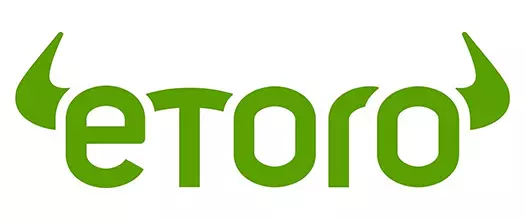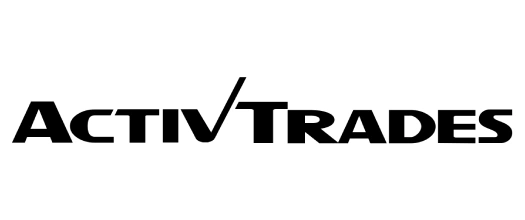CFD trading is a popular way for people in the UK to trade financial markets without owning the underlying assets. A CFD behaves like the asset in terms of price movements, but you never take ownership. It lets you speculate on price movements in areas such as Forex, shares, commodities, and indices. Because you’re trading through a broker rather than buying the asset outright, it’s important to choose a regulated CFD broker that offers fair costs, strong protections, and a platform that suits your needs.
 Pepperstone
Pepperstone Axi
Axi Eightcap
Eightcap Plus500
Plus500 FxPro
FxPro IG
IG CMC Markets
CMC Markets eToro
eToro ActivTrades
ActivTrades Fusion Markets
Fusion MarketsBelow you can find more information about the best CFD trading brokers in the UK:
- Pepperstone customers can access over 1,400 CFDs across all major asset classes, including currency pairs (91 symbols), indices, shares, commodities, and exchange-traded funds. Razor accounts offer more value with spreads from zero pips and discount commissions of £2.25 per side per standard lot.
- Axi enables tax-free spread betting and CFD trading on more than 140 products, with spreads from 1.2 pips for major Forex pairs traded through Standard accounts. Pro accounts offer even more favourable trading conditions, as Forex spreads drop to 0.2 pips with a £4.50 round-turn commission per standard lot.
- Eightcap provides a choice of more than 600 leveraged CFDs available on the TradingView platform. Commissions of 0.1% are charged only on share CFDs. Spreads for currency pairs start from a single pip, with the option to open positions from 0.01 to 100 lots. New clients can fund their accounts with just £100 to get started.
- Plus500 quotes prices for over 2,800 financial markets, including 60+ currency pairs. The broker operates a proprietary dealing desk, which enables it to offer fixed spreads from 1.2 pips for major Forex pairs. Other asset classes UK customers can speculate on include ETFs, commodities, indices, shares, and options.
- FxPro is well geared towards the needs of UK CFD traders, offering a comprehensive selection of more than 2,100 leveraged contracts. This includes over 70 currency pairs that can be traded with zero commissions and spreads from 1.2 pips via Standard accounts. As for leverage, the maximum retail clients can use is capped at 1:30. MT5, MT4, and cTrader are all supported.
- IG provides access to over 15,000 trading instruments and narrow Forex spreads from 0.6 pips for major currency pairs. The FCA-licensed broker supports several robust third-party platforms, including MT4, ProRealTime, L2 Dealer, and TradingView.
- CMC Markets enables seamless portfolio diversification by providing a choice of over 12,000 CFD markets, including 330 Forex pairs, indices, commodities, shares, and ETFs. These are tradable on the award-winning proprietary platform Next Generation, although MT4 and TradingView are also supported. The broker enables spread betting and CFD trading with spreads from 0.0 pips.
- Launched in 2007, eToro is a pioneer in providing state-of-the-art copy-trading services to customers worldwide, and the UK is no exception. Registered traders have access to over 7,000 CFD markets, including 56 Forex pairs, 46 commodities, 31 indices, ETFs, and thousands of stocks. CFD traders must cover spreads from 1 pip on majors like EUR/USD and USD/JPY.
- ActivTrades is a well-regulated broker with an FCA licence, offering CFD trading on over 1,000 instruments, including 54 Forex pairs, indices, shares, bonds, commodities, and ETFs. It features tight spreads from 0.5 pips, commission-free mini and micro lots, and no hidden fees. Clients benefit from fast execution, negative balance protection, and access to the MT4, MT5, and TradingView platforms.
- Fusion Markets is a low-cost Melbourne-based Forex broker offering tight spreads from 0.0 pips and a £3.55 commission per side for over 90 currency pairs. It provides ECN execution, has no minimum deposit requirements, and supports MT5, MT4, TradingView, and cTrader. We consider it appropriate for cost-conscious Forex traders.
The UK’s financial market is highly regulated, with the Financial Conduct Authority (FCA) overseeing brokers operating in the country. This ensures that traders have access to regulated platforms with strict investor protection measures, including negative balance protection, segregated funds, and access to compensation schemes. However, not all brokers offer the same features, trading conditions or support services.
This guide will walk you through everything you need to know about CFD brokers in the UK, including how to evaluate brokers, account types available, order execution models, trading costs, regulatory protections, and more. By the end, you’ll be equipped with the knowledge to select a broker that aligns with your trading goals and risk tolerance.
The Standards We Follow and Our Rating Methodology
How We Evaluate CFD Brokers
When evaluating CFD brokers in the UK, several key factors are considered to ensure they meet the needs of both novice and experienced traders. These factors not only affect the quality of the trading experience but also your safety and potential for success. Here’s a breakdown of the most important aspects we look at:
- Regulation and Broker Reputation
Regulation plays a vital role when selecting a CFD broker in the UK. Choosing a broker that is properly regulated helps guarantee transparency, fair trading practices, and strong investor safeguards. In the UK, all CFD brokers are required to meet the regulatory standards established by the Financial Conduct Authority (FCA).
- Variety of Tradable Markets and Instruments
The best CFD brokers offer a wide range of assets to trade. This includes:
- Forex: Major, minor, and exotic currency pairs
- Stocks: Shares of companies from global markets
- Commodities: Gold, oil, natural gas, and other raw materials
- Indices: Popular indices such as the FTSE 100, S&P 500, and DAX
- ETFs (Exchange-Traded Funds): CFDs on ETFs allow UK traders to gain exposure to entire sectors, regions, or strategies through a single instrument. Popular ETF CFDs include those tracking the S&P 500, tech sectors, emerging markets, and bond indices.
Having a broad range of assets provides traders with the flexibility to diversify their portfolios and explore different market opportunities.
- Trading Platforms and Tools
We assess the quality of the trading platforms offered by brokers, focusing on accessibility, user-friendliness, and the range of tools available. Popular platforms like MetaTrader 4, MetaTrader 5, and cTrader are highly valued, as they offer advanced charting features, technical analysis tools, and automated trading options. A good broker also provides mobile access, allowing traders to trade from anywhere at any time.
- Additional Services
Some brokers offer social trading or copy-trading features, allowing traders to follow and copy the trades of more experienced investors. Other value-added services might include VPS hosting for automated trading, market analysis, or trading signals to help traders make better decisions. These features can greatly enhance the trading experience and provide added value.
- Trading Costs
Low trading costs are a key factor in maximising profitability. We analyse spreads, commissions, overnight swap fees, and any non-trading fees (e.g., withdrawal fees, inactivity charges). A transparent fee structure is essential to avoid unexpected costs while trading.
- Educational Resources
Especially for beginner traders, brokers that provide educational content like webinars, video tutorials, market analysis, and trading guides are given higher ratings. These resources help traders improve their skills, stay updated on market trends, and understand complex trading concepts.
- Payments and Withdrawals
A good CFD broker provides multiple deposit and withdrawal options, including bank transfers, credit cards, and e-wallets like PayPal or Skrill. We also consider the processing times and fees for deposits and withdrawals, as quick and cost-effective transactions are essential for a smooth experience.
- Customer Support
Efficient and responsive customer support is crucial for resolving any issues or questions that may arise. Brokers with 24/7 support and a dedicated team are rated higher, as they ensure that traders can receive assistance in their native language whenever needed.
Why Are Regularly Updated Reviews So Important?
The financial landscape, particularly when it comes to CFD trading, is dynamic and constantly changing. That’s why we make sure to regularly update our reviews and evaluations of CFD brokers. This ensures that the information you receive is always current and relevant to your trading needs.
Our review process is ongoing, which means that any changes to a broker’s fees, trading platforms, available assets, or regulations are immediately reflected in our assessments. We also monitor user feedback and the regulatory landscape to ensure that brokers continue to meet the standards necessary for safe and effective trading.
Why Regular Updates Matter
- Changes in Regulation: The financial industry is subject to evolving regulations, especially in the UK, where the FCA may introduce new guidelines or rules that affect how brokers operate.
- Market Conditions: Broker features like spreads, leverage, and margin requirements can fluctuate with market conditions. We make sure to update this information regularly to provide the most accurate trading costs.
- Technology Updates: As trading platforms and tools evolve, brokers often release new features or tools for their clients. We keep track of these updates to ensure you have access to the most innovative tools available.
- User Experience: We take into account feedback from traders to assess how well brokers are serving their clients, including their customer support, educational resources, and overall trading experience.
By ensuring our reviews are consistently up to date, we aim to provide you with the most reliable and relevant information so you can make informed decisions when choosing your CFD broker.
Account Types Available for UK CFD Traders
When choosing a CFD broker, one of the key factors to consider is the type of account that suits your trading style, experience level, and capital. Brokers typically offer several types of accounts, each tailored to different needs. Here are the most common types of accounts available to UK CFD traders:
Standard Accounts
Standard accounts are the most common account type and are suitable for both beginner and intermediate traders. With a standard account, you will trade typical lot sizes and have access to the full range of trading instruments offered by the broker. The minimum deposit and leverage options may vary, but this account type provides a balance between flexibility and affordability.
A lot size refers to the volume or amount of a financial instrument you are trading. In Forex, one standard lot usually equals 100,000 units of the base currency. Brokers may also offer smaller lot sizes, like mini lots (10,000 units) or micro lots (1,000 units), which can help manage risk and make trading more accessible to beginners.
Professional and High-Volume Accounts
Professional accounts are designed for experienced traders who engage in high-frequency or high-volume trading. These accounts often offer higher leverage and lower spreads, making them ideal for those looking to trade larger positions. They may require a higher minimum deposit and proof of trading experience to qualify for professional status.
Raw Spread and Commission-Based Accounts
Raw spread accounts offer very low spreads, but brokers charge a separate commission on trades. This account type is ideal for traders who want tighter spreads and are comfortable with paying a commission on their trades. Raw spread accounts tend to be most beneficial for high-volume traders.
Spread Betting Accounts
Spread betting is a form of derivative trading where UK traders speculate on the price movement of a financial instrument without owning the underlying asset. Instead of buying or selling units, they bet a certain amount of money per point of price movement. Unlike CFD trading, spread betting is tax-free in the UK (no capital gains tax or stamp duty) under current regulations.
Islamic Accounts (Swap-Free Accounts)
For traders who follow Islamic principles, many brokers offer Islamic accounts (also known as swap-free accounts). These accounts neither charge nor pay interest, an element considered a violation of Sharia law, and are commonly used by those seeking to avoid overnight financing fees associated with leveraged trades.
Demo Accounts
Demo accounts are a great way for beginners to get familiar with CFD trading without risking real money. They provide access to real-time market conditions and allow you to practise trading strategies using virtual funds. Demo accounts are also useful for experienced traders who want to test new strategies or explore a broker’s platform before committing real capital.
Micro and Mini Accounts
For traders who want to start small, micro and mini accounts are ideal. These accounts allow you to trade smaller lot sizes, which means you can enter the market with a lower investment. They are especially useful for new traders who want to test their strategies with limited risk and capital.
Choosing the Right Account Type
Selecting the right account type is crucial to your trading success. Consider your trading experience, capital, and risk tolerance when choosing an account. Beginners may prefer demo or micro accounts to start, while experienced traders may opt for professional accounts or those with raw spreads for better trading conditions.
Order Execution Models Used by CFD Brokers
Understanding the different order execution models is essential for choosing the right CFD broker, as it directly impacts your trading experience, including speed, price execution, and overall costs. Here are the most common execution models offered by CFD brokers in the UK:
Dealing Desk (DD)
In a Dealing Desk model, the broker acts as the market maker. This means that when you place a trade, the broker is responsible for executing it. The broker may either take the other side of your trade or pass it along to liquidity providers.
In fast-moving markets, a Dealing Desk broker can sometimes deliver better price execution. Do not rule out this model just because spreads might be wider when volatility rises.
Advantages
- Fixed spreads and potentially lower commissions.
- Faster execution, especially in less volatile markets.
Disadvantages
- Conflict of interest: The broker could profit if you lose a trade, as they are taking the opposite side.
- The spread may be wider in volatile conditions.
No Dealing Desk (NDD)
The No Dealing Desk model ensures that brokers do not interfere with trade execution, instead passing orders directly to liquidity providers (such as banks or other financial institutions). There are two main types of NDD execution:
- STP (Straight-Through Processing): Orders are routed directly to liquidity providers without broker intervention, offering faster execution and variable spreads.
- ECN (Electronic Communication Network): Traders are connected to a pool of liquidity providers, such as banks, hedge funds, and other market participants, ensuring competitive pricing and greater transparency.
Advantages
- No conflict of interest, as brokers do not take the other side of your trade.
- Potential for tighter spreads.
- Transparency in pricing and execution.
Disadvantages
- Higher commission fees compared to Dealing Desk models.
- More complex for beginners due to the reliance on external liquidity providers.
ECN (Electronic Communication Network)
The ECN model connects traders directly with a network of liquidity providers, such as large banks, hedge funds, and other institutions, to execute trades. In this model, you’re not trading with the broker directly but with a pool of other market participants.
Advantages
- Tighter spreads and more accurate pricing.
- Full market transparency, as you can see the available bids and asks in real time.
- Faster execution with little to no slippage.
Disadvantages
- Higher commission fees per trade.
- Often requires a higher minimum deposit and is more suitable for experienced traders.
STP (Straight-Through Processing)
In the STP model, brokers directly route client orders to liquidity providers (like banks or other financial institutions) for execution. The broker does not intervene in the execution process, offering fast and reliable trade fills.
Advantages
- No conflict of interest between the broker and trader.
- Typically, tighter spreads and lower commissions compared to DD models.
- Transparent pricing, with execution speeds that are generally faster than in Dealing Desk models.
Disadvantages
- Variable spreads depending on market conditions, which can widen during volatile periods.
- Some brokers may add a small markup to the spread.
Choosing the Right Execution Model
Each execution model comes with its own set of pros and cons. ECN and STP models are generally better suited for professional traders looking for tight spreads and fast execution, while Dealing Desk models might be more suitable for beginners or traders looking for a simpler and lower-cost option.
Popular Order Types Available to UK CFD Traders
Understanding the different order types available when trading CFDs is essential to manage your risk and execute your trades effectively. Each type of order has its specific use, depending on your trading strategy and goals. Below are the most common order types used by British CFD traders:
- Market Order
A market order is the most straightforward type of order. It allows you to buy or sell an asset immediately at the current market price. This is useful when you want to enter or exit a trade quickly, without waiting for a specific price. - Limit Order
A limit order is used to buy or sell an asset at a specific price or better. For buy orders, it is set at a lower price than the current market price, while for sell orders, it is set higher than the market price. Limit orders are useful when you want to enter the market at a preferred price but do not need to trade immediately. - Stop-Loss Order
A stop-loss order is used to limit your losses by automatically closing a position when the market moves against you. You set a price at which the broker will close your position to prevent further loss. This is one of the most important risk-management tools for any trader. - Take-Profit Order
A take-profit order is used to lock in profits by automatically closing your position when the market reaches a certain price. This order helps you exit trades at a predetermined level of profit, without having to constantly monitor the market. - Trailing Stop Order
A trailing stop order is a dynamic version of the stop-loss order. It moves with the market in your favour, locking in profits as the price moves in the direction of your trade. If the market reverses by a specified amount, the position is automatically closed. - OCO (One Cancels the Other) Order
An OCO order is a combination of two orders, typically a limit order and a stop-loss order. If one of the orders is triggered, the other is automatically cancelled. This type of order is useful when you want to set both a target price and a risk level but only want one of the orders to be executed.
Choosing the Right Order Type
The choice of an appropriate order type depends on your trading style and market conditions. Traders who prefer to take profits at specific levels or limit their risks will often use stop-loss and take-profit orders. More experienced traders may use trailing stops and OCO orders for additional flexibility.
Available CFD Trading Platforms in the UK
Choosing the right trading platform is crucial for an optimal trading experience. A good platform should offer fast execution speeds, advanced charting tools, and a user-friendly interface. Below are the most popular CFD trading platforms used by traders in the UK:
MetaTrader 4 (MT4)
MetaTrader 4 is one of the most widely used trading platforms globally, known for its simplicity, reliability, and extensive features. It is particularly popular among Forex and CFD traders.
Key Features:
- Advanced charting tools with customisable indicators.
- Supports Expert Advisors (EAs) for automated trading.
- One-click trading and real-time price feeds.
- Available on desktop, web, and mobile.
MetaTrader 4 Average Execution Speed by Broker
Best For: Beginner to advanced traders looking for a well-established platform with strong automation capabilities.
MetaTrader 5 (MT5)
MT5 is the upgraded version of MT4, offering additional timeframes, order types, and market depth features. It is a great option for traders who want more advanced functionalities.
Key Features:
- Supports more asset classes, including stocks, commodities, and indices.
- Enhanced order management with six types of pending orders.
- Integrated economic calendar and advanced analytical tools.
- Faster processing speeds compared to MT4.
MetaTrader 5 Average Execution Speed by Broker
Best For: Traders who need more advanced features and a wider range of tradable assets.
cTrader
cTrader is a premium trading platform that offers high-speed execution, advanced order types, and superior charting tools. It is often favoured by traders using ECN (Electronic Communication Network) accounts.
Key Features:
- Depth of Market (DOM) for better price transparency (DOM shows the number of buyers and sellers at different price levels for a trading instrument).
- Advanced order execution with one-click trading.
- Intuitive, modern user interface with customisable workspaces.
- Supports algorithmic trading through cAlgo.
cTrader Average Execution Speed by Broker
Best For: Scalpers and professional traders who need fast execution and deep liquidity.
Proprietary Broker Platforms
Some CFD brokers in the UK offer proprietary platforms tailored to their specific trading conditions and customer needs. These platforms often provide exclusive tools, risk-management features, and integrations that are not available on third-party platforms.
Key Features:
- Custom-built interfaces with unique features.
- Optimised for mobile and web trading.
- Some offer zero commissions or lower fees for using the broker’s platform.
Best For: Traders who prefer a broker-specific experience with unique tools and lower trading costs.
WebTrader and Mobile Apps
Most brokers provide a web-based version of trading platforms, which requires no installation and allows traders to access the markets from any device with an internet connection. Mobile trading apps are also widely available, enabling traders to execute trades on the go.
Key Features:
- No need for software installation.
- Instant access to markets via any browser.
- Compatible with Android and iOS devices for mobile trading.
Best For: Traders who need flexibility and the ability to trade from anywhere.
Choosing the Right Trading Platform
The right trading platform depends on your trading style and experience level. MT4 and MT5 are great all-around options, while cTrader is ideal for professionals who need fast execution. Proprietary platforms can offer unique advantages, especially when integrated with a broker’s ecosystem.
Spreads, Commissions, and Other Trading and Non-Trading Fees
Understanding the costs associated with CFD trading is essential for managing your trading expenses and maximising profits. CFD brokers in the UK apply various fees, including spreads, commissions, overnight swaps, and non-trading fees. Below is a breakdown of the most common charges you should be aware of.
Spreads
The spread is the difference between the bid (sell) price and the ask (buy) price of an asset. This is the primary way many CFD brokers generate profit.
- Fixed Spreads: The spread remains constant, regardless of market volatility.
- Variable Spreads: The spread fluctuates based on market conditions.
- Examples: If a CFD broker offers the GBP/USD pair at 1.2868/1.2865, the spread is 3 pips (0.0003 spread converted into pips). For trading FTSE 100 CFDs, common among UK traders, a typical spread offered by UK brokers might be a 1-point spread during peak hours. If each point move in the FTSE 100 equals £10 per contract, the spread cost is 1 point × £10 = £10 per trade.
Lower spreads are beneficial for traders, especially scalpers and day traders who enter multiple positions in a short time.
Average Forex Spreads by Broker
Average Gold Spreads by Broker
Commissions
Some brokers charge a commission per trade instead of, or in addition to, spreads. Commissions are usually applied in Raw Spread or ECN accounts, where spreads are tighter. It is worth noting that commissions are often excluded when trading CFDs on commodities, indices, ETFs, and assets other than Forex pairs and shares.
- Fixed Commission: A set fee per lot traded (e.g., £3 per side per lot).
- Percentage-Based Commission: A percentage of the total trade value (e.g., 0.1% per trade).
Example: If you trade 1 lot of GBP/USD with a broker charging £7 per round-turn, you will pay £3.50 to open and £3.50 to close the trade. A round-turn commission is the total cost charged for both opening and closing a trade.
Overnight Swaps (Rollover Fees)
Overnight swap fees are charged when a position remains open past the broker’s daily cut-off time. These fees are based on the interest-rate differentials between currencies (for Forex) or margin costs (for CFDs on stocks, indices, etc.).
- Positive Swap: You earn interest if the currency you’re buying has a higher interest rate than the one you’re selling.
- Negative Swap: You pay interest if the currency you’re selling has a higher interest rate than the one you’re buying.
- Islamic (Swap-Free) Accounts: Traders who follow Islamic finance principles can opt for swap-free accounts, where overnight interest is replaced with an alternative fee structure.
Deposit and Withdrawal Fees
Many brokers offer free deposits, but some may charge withdrawal fees depending on the payment method used.
- Bank transfers: Can have higher fees and longer processing times.
- Credit/debit cards and e-wallets (PayPal, Skrill, Neteller): Typically processed faster but may include small transaction fees.
Example: A broker may charge a £10 withdrawal fee for bank transfers but offer free withdrawals for e-wallets.
Inactivity Fees
Some brokers apply an inactivity fee if a trader does not log in or trade for a certain period (e.g., 3 to 12 months). These fees can range from £10 to £50 per month.
Tip: If you plan to take a break from trading, check your broker’s inactivity policy to avoid unexpected charges.
VPS Subscription Fees
A Virtual Private Server (VPS) allows traders to run automated trading strategies without needing their computer to be on 24/7. Some brokers offer free VPS services to high-volume traders, while others charge a monthly subscription fee.
Choosing a Cost-Effective Broker
- To minimise trading costs, look for brokers with:
- Tight spreads on major assets.
- Low or no commissions for standard accounts.
- Competitive swap rates (or swap-free options if needed).
- Free deposits and withdrawals where possible.
- No inactivity fees or hidden charges.
Regulations on CFD Trading in the UK
Regulation is one of the most crucial factors when choosing a CFD broker in the UK. A well-regulated broker ensures transparency, fair trading conditions, and investor protection. In the UK, CFD brokers must comply with the standards set by the Financial Conduct Authority (FCA).
FCA (Financial Conduct Authority)
The FCA is the United Kingdom’s primary financial regulatory authority, overseeing financial firms and ensuring market integrity and consumer protection.
Key FCA Regulations for CFD Brokers:
- Negative Balance Protection: Ensures traders cannot lose more than their deposited funds.
- Leverage Restrictions: For retail traders, leverage is capped at:
- 1:30 for major Forex pairs
- 1:20 for non-major Forex pairs, gold, and major indices
- 1:10 for commodities (excluding gold)
- 1:5 for equities
- 1:2 for cryptocurrencies (available to professional UK traders only)
- Mandatory Risk Warnings: Brokers must display the percentage of retail clients who lose money.
- Ban on Binary Options and Aggressive Promotions: To protect retail investors from high-risk products.
- Client Fund Segregation: All client funds must be held separately from brokers’ operating funds.
- Investor Compensation Scheme: Traders are protected under the Financial Services Compensation Scheme (FSCS), which covers up to £85,000 per person if the broker goes bankrupt.
Security and Investor Protection for UK CFD Traders
Security and investor protection are critical when trading CFDs in the UK. A well-regulated broker must implement strong measures to safeguard client funds, ensure fair trading conditions, and protect traders from excessive risks. Below are the key security mechanisms in place for UK CFD traders.
Negative Balance Protection
Negative balance protection ensures that traders cannot lose more than their deposited funds. This is especially important in volatile markets where extreme price movements can lead to substantial losses.
How It Works:
If a trader’s account balance goes negative due to market volatility, the broker resets it to zero instead of requiring additional payments. This protection applies to retail traders registered under the FCA.
Segregation of Client Funds
Regulated brokers in the UK must keep client funds separate from company operational accounts. This ensures:
- Client deposits are not used for broker expenses or trading activities.
- If the broker goes bankrupt, trader funds remain protected and retrievable.
Tip: Always verify that your broker adheres to segregated fund policies before depositing money.
Investor Compensation Schemes
FCA-regulated brokers participate in the UK’s investor compensation scheme, which protects traders in case of broker insolvency. EU-regulated brokers offer similar protections under MiFID II.
- UK Brokers: Financial Services Compensation Scheme (FSCS) (FCA Regulated)
Covers up to £85,000 per trader. - EU Brokers: Investor Compensation Fund (ICF) (CySEC Regulated)
Covers up to €20,000 per trader.
Secure Trading Platforms and Data Protection
Top-tier brokers use advanced security protocols such as SSL encryption, two-factor authentication (2FA), and secure payment gateways to protect traders’ accounts and transactions.
- SSL Encryption: Safeguards sensitive personal and financial data.
- Two-Factor Authentication (2FA): Adds an extra layer of protection during login and transactions.
- Regulated Payment Methods: Use brokers that support secure and well-regulated banking options (bank transfers, PayPal, Visa/MasterCard, etc.).
Risk Warnings and Transparency
FCA-regulated brokers must provide clear risk warnings about CFD trading, including:
- The percentage of retail traders losing money on their platform.
- Transparent information about leverage, spreads, and fees.
- No misleading claims about guaranteed profits or “risk-free trading”.
How to Verify a Broker’s Security Measures
Before opening an account, consider these features:
- Negative balance protection to prevent excessive losses.
- Fund segregation to ensure your deposits are secure.
- Investor compensation scheme coverage in case of broker insolvency.
- Secure trading platform with SSL encryption and 2FA.
- Transparent risk disclosures with no misleading promotions.
By selecting a broker with these security features, British traders can trade CFDs with confidence and peace of mind.
Final Thoughts
Selecting the right CFD broker is a critical step for UK traders looking to succeed in the financial markets. By considering key factors such as regulation, security, available account types, fees, trading platforms, and investor protection, traders can ensure they partner with a broker that fits their needs and risk profile. Given recent regulatory updates, it is crucial to choose brokers that are not only well-regulated but also fully compliant with the latest FCA guidelines.
Recap of Key Considerations:
- Regulation: Ensure the broker is regulated by the FCA, the official financial regulatory body in the UK.
- Security: Look for brokers that offer negative balance protection, segregated funds, and compensation schemes to safeguard your investments.
- Account Types and Costs: Choose from various account types, from demo accounts for practice to ECN accounts and options for professional traders. Always check the spreads, commissions, and fees.
- Trading Platforms: Select a platform that aligns with your trading style, whether it is MetaTrader 4, cTrader, or broker-specific options.
The Right Broker for Your Goals
Every trader is unique, and their ideal CFD broker depends on their individual goals, trading preferences, and experience. Whether you’re just starting out with a demo account, seeking low spreads for active trading, or needing professional support, you’ll find a broker that meets your needs.
Make sure to do your research, take advantage of demo accounts for hands-on experience, and keep your trading strategy and goals in mind as you make your choice.
Choosing a trusted, well-regulated CFD broker can help you start your trading journey in the UK with greater confidence and protection.